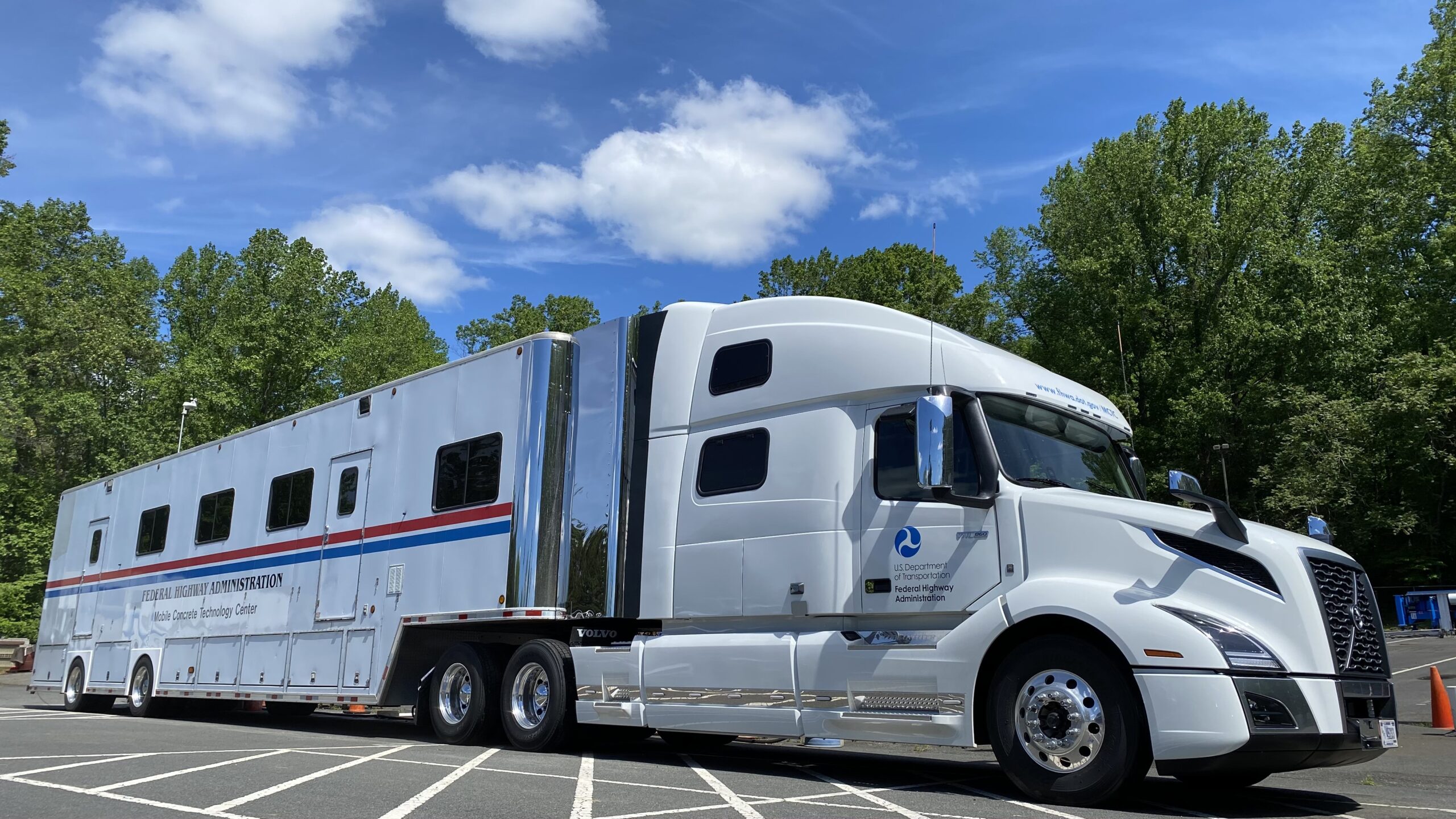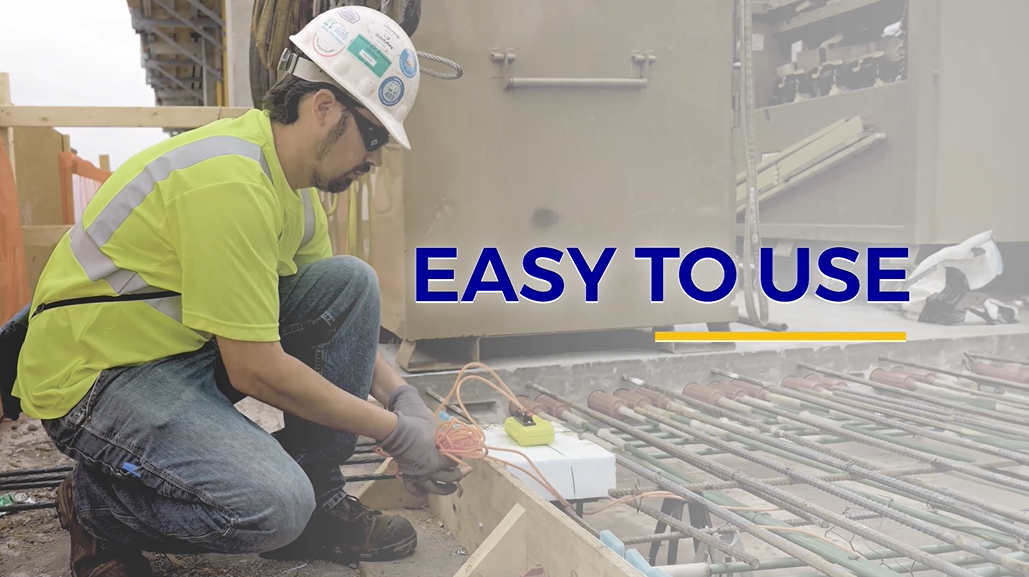For decades, the Federal Highway Administration (FHWA) has hit the road with a mobile resource designed to showcase innovative concrete testing equipment and processes to a wide range of professionals spanning industry organizations, state highway agencies, universities, and more. Previously known as the Mobile Concrete Laboratory (MCL), the Mobile Concrete Technology Center (MCTC) today travels the country in its quest to transfer knowledge and modern technology. This includes using the maturity concept to estimate the early-age strength of in-place concrete, a method easily implemented with the COMMAND Center™ system.
Below, we answer several common questions about the MCTC and how individuals and teams can benefit from its resources.
What services and resources does the MCTC provide?
The MCTC works towards its “goal of technology deployment” through four main ways: participating in construction projects, performing demonstrations, delivering training, and offering equipment loans. MCTC project participation includes on-site field testing at construction projects to support agency testing and demonstrating new equipment and practices. Participating personnel also receive training and get hands-on experience.
How does the MCTC’s equipment loan program work?
The MCTC’s equipment loan program gives agency or industry personnel an opportunity to borrow and use equipment for varying periods upon receiving MCTC training. This provides a great “try-before-you-buy” benefit so that agencies do not waste dollars on equipment that ultimately will not meet their needs. Equipment available for loan includes Super Air Meter, tensile bond strength, maturity testing, surface resistivity, nondestructive pavement thickness and more. The MCTC equipment loans webpage provides contact details for those interested in the program.
Does the MCTC have materials detailing the Maturity Concept for measuring concrete strength?
Yes! The MCTC’s resources web page provides free downloadable one-page overviews of several concrete technologies. These includes an overview of the Maturity Concept, which the FHWA cites as a “proven, yet underutilized, technology that provides several advantages over conventional techniques for determining when to open a pavement to traffic or when to strip forms from a structural placement.”
Does the FHWA publish a list of pavement publications that provide additional information?
Yes! In addition to the MCTC one-pagers available on the resources web page, the pavement publications page on the FHWA website has an incredibly deep assortment of publications surrounding concrete and road construction technologies. The publications include tech briefs that provide introductions to concepts and approaches, strategies for concrete preservation, checklists, summary reports, and more.
A Partner for Professionals Involved in Concrete Projects
Since the late 1980s, the MCTC has closed what the FHWA then recognized was “a significant gap between the state-of-the-art technologies emerging from public and private research laboratories and the implementation of these technologies by state highway agencies and the highway construction industry.” The current focus of the MCTC centers on areas such as Performance Engineering Mixture (PEM) specifications, quality assurance, nondestructive testing, long-life pavements, durability, and more as they continue growing active partnerships with manufacturers, contractors, industry associations, and academia to carry out their mission.
To learn more about the Mobile Concrete Technology Center, visit their website.
To learn more about Maturity research and COMMAND Center™, click here.




